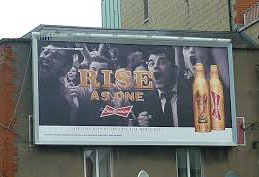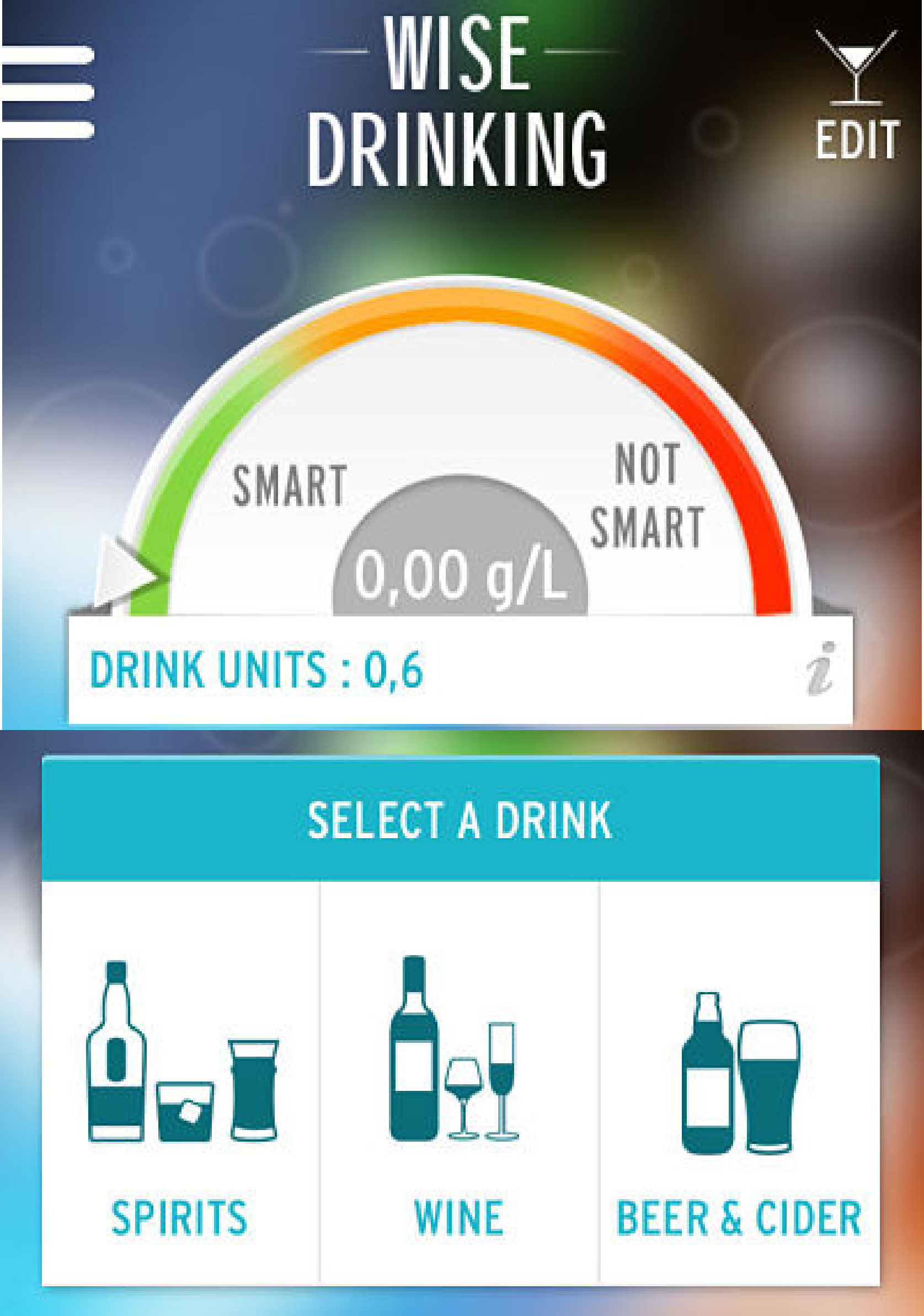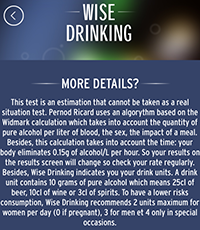In the Doghouse
Search
In the Doghouse
A-B InBev Hijacks Colorado Town for Giant Beer Ad
September 17, 2014
The deal for the event, called "Whatever, USA," was a sneaky, under the table negotiation between A-B InBev and the town's mayor, Aaron Huckstep. When residents found out and protested, A-B InBev simply doubled its original offer to $500,000-chump change for the company. A-B InBev seems to believe it can simply buy the right to strain public resources, inconvenience residents, and turn a town into a giant promotion for a harmful product, whether residents want it or not.
Bud Light marketing director David Daniels, bragging about the town takeover publicity stunt, explained "We believe our consumers like us to do big and bold things." (If you live in the town or don't happen to be a Bud Light consumer, apparently your opinion doesn't count.) Anheuser-Bush spokesman Nick Kelly stated, "For a town that doesn't want us here, they ran through those wristbands pretty quickly." With telling arrogance, Kelly and Daniels blame the town and its residents for A-B InBev's takeover. It's the same old industry theme - blame those who get hurt or don't like what industry does, rather than standing accountable for the harm it causes.
If centering an entire weekend-long town party around a single alcoholic beverage brand seems acceptable, imagine a town hosting a similar "Camel Lights" weekend with inflatable Joe Camels all over town and unlimited cigarettes provided to the young partiers. If normalizing excessive consumption still doesn't seem like a problem, consider the harm statistics. One in 6 U.S. adults now engages in regular binge drinking, and alcohol consumption now accounts for 1 in 10 deaths among U.S. working-age adults. The economic harm totals $223.5 billion in the U.S. each year. Whether the takeover involves painting a town blue, or millions in political contributions and lobbying, A-B InBev is all about domination - of revenue and profits.
A-B InBev Steamrolls National Policy for World Cup Sales
August 24, 2014
Anheuser-Busch InBev (A-B InBev) is on a roll: it reaped huge profits from a worldwide surge in alcohol consumption prompted by its official sponsorship of the FIFA 2014 World Cup. This, after A-B InBev and FIFA (Federation Internationale de Football Association) strongarmed Brazil to change its laws banning alcohol sales at sports stadiums for the World Cup, despite protests from the Brazilian government and its people.
The extent of A-B InBev's penetration into the World Cup experience was unprecedented. An Out-Of-Home (OOH) "Rise as One" advertising campaign via ClearChannel ensured constant exposure to Budweiser marketing and promotion, making the event inseparable from the Budweiser brand for all fans and viewers, including millions of youth.
A-B InBev's political might shows no sign of losing steam. For the 2018 World Cup, A-B InBev and FIFA have now cajoled Russia into reversing a 2012 ban on alcohol advertising that was adopted as part of former President Medvedev's 2009 strategy to fight rampant alcohol problems in the country. Russians will now be exposed to alcohol advertising on TV and in stadiums until the 2018 World Cup concludes. But what's a country's health and safety compared to record beer sales?
Pernod Ricard's New App: "Drinking is Smart!"
August 6, 2014 |
| Pernod Ricard's mobile alcohol consumption app promotes excessive alcohol consumption and gives a false impression that drinking alcohol is a smart and healthy choice. |
Pernod Ricard has released a new alcohol consumption calculator app that tracks users' alcohol consumption, ostensibly helping users avoid excessive consumption. What the app actually does is encourage users to drink, promoting messages that drinking is "smart," "wise," and a healthy choice.
The app also uses geolocation to encourage users to drink as much as possible within the local law, and find local transportation when they've consumed more than the legal limit (although the app does not measure blood alcohol level, creating the potential for drunk drivers to assume they are OK to drive). In addition, the app recommends daily alcohol consumption of 1.4 standard drinks for women (9.8 drinks per week) and 2.1 for men (15 drinks per week) - levels the Centers for Disease Control (CDC) considers heavy drinking - and gives the impression that consuming alcohol every day is healthy and normal. Promoting drinking culture is what the app is all about.
 |
| Pernod Ricard's mobile alcohol consumption app calculates consumption in 10-gram units, less than one standard drink (14 grams), encouraging users to drink heavily and believe that they are drinking moderately. |
If the app were to actually help users avoid alcohol-related harm, here are a few messages it would share:
- Moderate alcohol consumption significantly increases the risk of stomach, pharynx, larynx, esophagus, colorectum, liver, and female breast cancers.
- There is no safe level of alcohol consumption before driving.
- Moderate drinking limits of no more than 1 per day for women, 2 for men, are intended as a guideline for any single day, not cumulative over a period of time, as the app represents. Consuming alcohol every day is not moderate consumption.
- Moderate alcohol intake also is associated with increased risk of violence, drowning, and injuries from falls and motor vehicle crashes.
As Pernod Ricard is likely well aware, its products are already listed in the top 10 brands consumed by underage youth (Absolut) and those disproportionately consumed by youth (Malibu). There is nothing but a useless agegate between underage youth and the app's "download" button. Then users can create a user profile and enter any date they please that represents them as 21 or older.
Which brings us to Pernod's laughable, and lamentable, disclaimer for app downloaders. Pernod's disclaimer reminds users that the app is perfectly useless in actually determining blood alcohol level or a "safe" level of alcohol consumption, and that Pernod is "not responsible whatsoever for any damages resulting from the use of the app or any decisions made by the user."
So you might wonder, where exactly is this "responsibility" of which Pernod Ricard is so proud, since this app was released to coincide with its 4th annual Responsib’All Day as a call to action involving Pernod brands? That's right, responsibility = marketing ploy. Let the drinker/buyer/user beware.
More Articles ...
Help us hold Big Alcohol accountable for the harm its products cause.
| GET ACTION ALERTS AND eNEWS |
STAY CONNECTED    |
CONTACT US 24 Belvedere St. San Rafael, CA 94901 415-456-5692 |
SUPPORT US Terms of Service & Privacy Policy |
Copyright © 2024 Alcohol Justice. All Rights Reserved.
Joomla! is Free Software released under the GNU General Public License.


